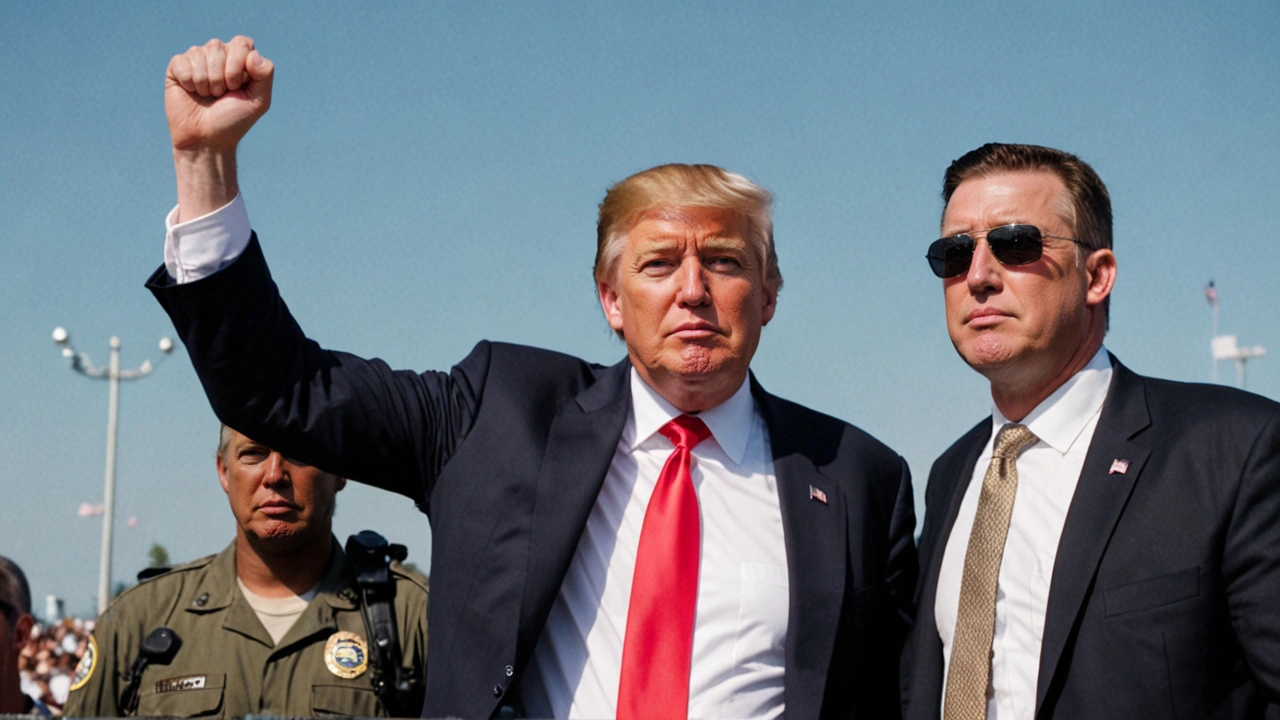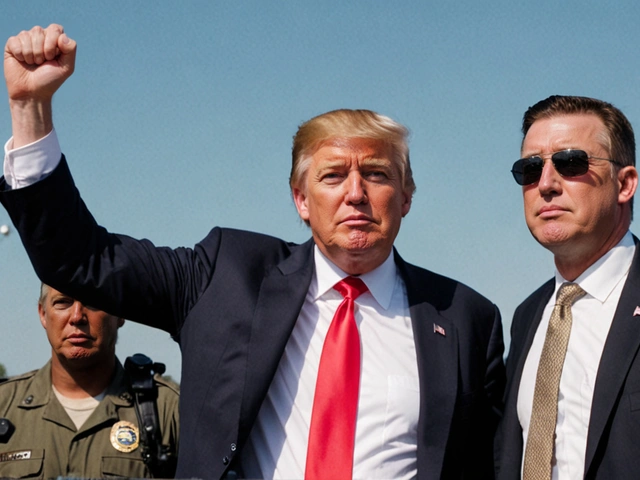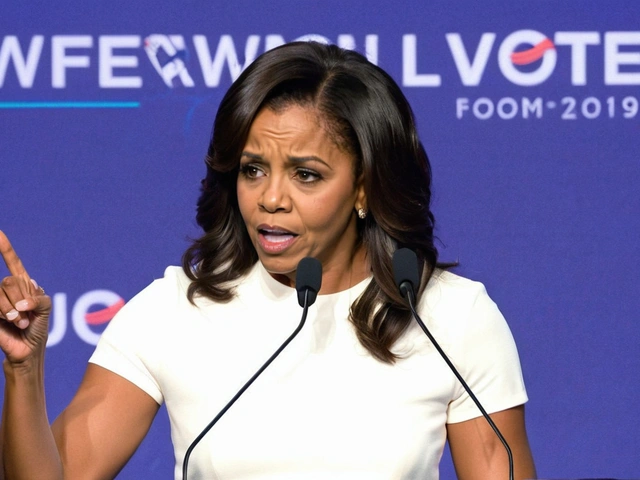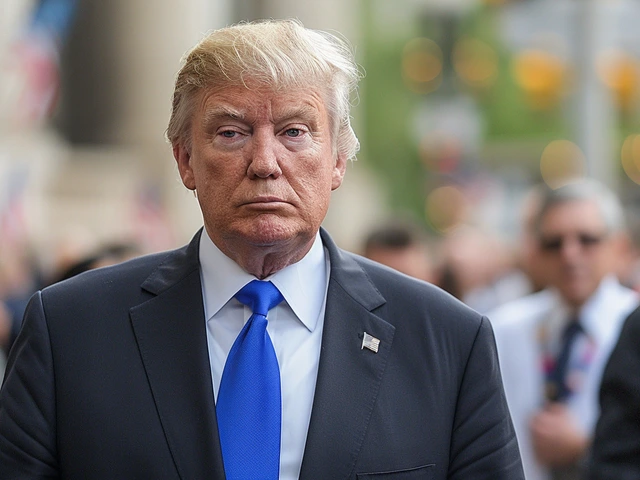Trump Unharmed After Shocking Assassination Attempt at Pennsylvania Rally
On a seemingly routine Saturday rally in Butler, Pennsylvania, former President Donald Trump found himself at the center of a chilling assassination attempt. The incident, which unfolded swiftly and violently, left the political landscape and the nation in shock. As the audience gathered to hear Trump speak, a sudden eruption of gunfire shattered the sense of security.
Chaos at the Rally
Trump was addressing a large crowd of supporters when the attack occurred. Witnesses report that he was rushed off stage by his security detail immediately after shots were fired. The event was cut short as chaos ensued, with attendees scrambling to take cover and find safety. Initial reports indicate that Trump's quick evacuation was critical, ensuring his safety.
Injuries and Fatalities
The aftermath of the shooting was grim. Secret Service agents quickly neutralized the suspected gunman, who was pronounced dead at the scene. However, the tragedy did not end there. One rally attendee was fatally wounded, and two others sustained critical injuries, creating a somber atmosphere despite the successful thwarting of the attempted assassination.
Local medical personnel acted swiftly, providing immediate care to the injured. Former President Trump was taken to a nearby medical facility for a thorough check-up. Fortunately, he was found to be uninjured and later released. In a statement, Trump expressed profound gratitude to law enforcement and first responders, whose timely actions undoubtedly spared further loss of life.
Reactions from Leaders
The attempt on Trump's life resonated strongly across the political spectrum. President Joe Biden condemned the violence, calling the incident 'sick' and 'unacceptable.' His statements of solidarity underscored the importance of maintaining a safe environment for all political figures, regardless of party affiliation. Congressional leaders from both sides echoed similar sentiments, emphasizing the need for unity in the face of such threats.
Several former presidential candidates also voiced their support for Trump and their abhorrence of the attack. The bipartisan condemnation highlighted a shared belief in upholding the democratic process and protecting individuals' rights to engage in political discourse without fear of violence.
FBI Investigation
The FBI has taken the lead in the investigation, signaling the federal government's commitment to uncovering the motives behind the assassination attempt. Early reports suggest a comprehensive review of the suspect's background is underway, including possible affiliations and prior activities that might shed light on the attack.
As the investigation progresses, the FBI will likely collaborate with local law enforcement and other federal agencies to ensure a thorough examination of evidence. This concerted effort aims to prevent future incidents and bring those responsible to justice, reinforcing the message that such violence has no place in society.
Impact on the Community
The Butler community, left to grapple with the shocking events, has shown remarkable resilience. Vigils and memorials have been organized to honor the deceased attendee and support those critically injured. Local leaders have called for unity and vigilance, urging residents to remain strong in the face of adversity.
The incident has prompted discussions about security at political events, with many advocating for heightened measures to protect public figures and their supporters. These conversations are likely to continue as the nation processes the implications of the attempted assassination.
Trump's Response
In his first public appearance following the attack, Trump addressed his supporters with a message of resilience and gratitude. He thanked the Secret Service and medical personnel, acknowledging their role in ensuring his safety and the care of the injured. Trump's undeterred demeanor was aimed at reassuring his base and affirming his commitment to his political journey.
Reflecting on the incident, Trump reiterated the importance of civil discourse and the democratic values that underpin the nation. His call for unity and vigilance served as a reminder of the broader implications of violence in the political arena.
Future Implications
The assassination attempt on Trump is likely to have lasting effects on the political climate. Increased security measures, a spotlight on political violence, and a renewed call for bipartisan cooperation are some of the expected outcomes. The incident serves as a stark reminder that the safety of public figures and the preservation of democratic principles must remain paramount priorities.
As the investigation unfolds and the nation reflects, the hope is that such a heinous act will only strengthen the resolve to uphold the freedoms and rights that are foundational to American society.





Comments
Well, that's another day in the circus, I guess.
If we strip away the sensational headlines and look at the raw mechanics of political violence, we see a pattern that is as old as the very concept of civic dissent.
The attempt on a former president's life is not merely an isolated act of madness; it is the latest manifestation of a deepening schism between the rhetoric of populist demagoguery and the institutional safeguards that undergird our republic.
One could argue that the very structure of our media ecosystem, which prizes conflict over nuance, creates an environment where the line between protest and assassination blurs.
Furthermore, the swift response of the Secret Service and local law enforcement demonstrates that the state apparatus, when properly mobilized, can neutralize threats before they cascade into greater tragedy.
However, it would be naive to celebrate this single successful intervention without interrogating the systemic conditions that foment such extremism.
When political leaders consistently deploy incendiary language, they plant seeds of hostility that can germinate in the minds of already volatile individuals.
The psychological profile of a lone gunman, while unique in its specifics, often shares a common thread of perceived grievance against a symbol of power.
In this case, the symbol was Donald Trump, a figure who, regardless of one's personal stance, epitomizes a polarizing ideal.
Consequently, the act of targeting him transcends mere personal animus and becomes a statement against the broader ideological camp he represents.
From a philosophical standpoint, this raises profound questions about the limits of free speech when it collides with the incitement of violence.
Should we, as a society, impose stricter constraints on incendiary rhetoric, or does that verge on censorship and the erosion of democratic dialogue?
The answer, of course, lies not in binary choices but in a nuanced calibration of accountability and expression.
Policy reforms aimed at tightening security at political gatherings must be coupled with earnest efforts to deescalate partisan vitriol.
Only then can we hope to diminish the appeal of extremist narratives that glorify martyrdom through firearms.
The FBI's involvement, while essential for forensic clarity, should also be a catalyst for a broader national conversation on the roots of political aggression.
Ultimately, the resilience demonstrated by the crowd and the swift justice served by law enforcement should not lull us into complacency but inspire a collective recommitment to safeguarding both lives and liberties.
Ah, the melodrama of American politics never disappoints, does it? Yet, the superficial outrage sold by pundits does little to dissect the underlying sociopolitical decay. One must recognize the grotesque theater of security theatrics that masks a deeper malaise in democratic ethos. The perpetrator's profile, while tragic, is a textbook case of radicalized individualism in a fragmented polity. In short, we are witnessing the inevitable fallout of a civilization that glorifies division over discourse.
Did anyone else feel their heart stop when those shots rang out? The sheer chaos was a brutal reminder that even the most protected figures are vulnerable to the darkness lurking in crowds. My thoughts are with the innocent lives shattered that night, and I hope the community finds the strength to heal.
Security at political events has always been a delicate balance between openness and protection. In light of recent events, venues should consider layered perimeters, metal detectors, and trained crowd‑monitoring teams to deter potential threats. Attendees can also stay vigilant by reporting suspicious behavior to staff immediately. While we cannot eliminate risk entirely, these measures have proven effective in reducing incidents at large gatherings across the country.